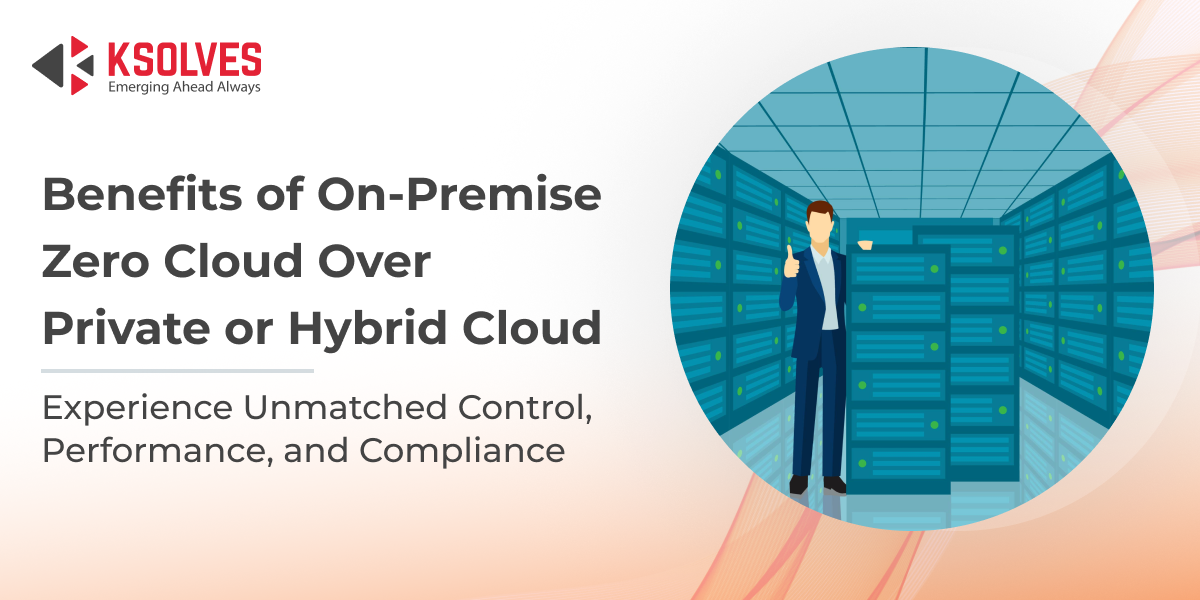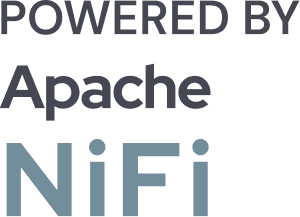Why Choose On-Premise Zero Cloud Over Private or Hybrid Cloud Solutions
![]()

As organizations evolve in their digital transformation journeys, choosing the right infrastructure strategy becomes crucial to balancing security, performance, and operational agility. While cloud adoption has surged over the past decade, driven by promises of scalability, cost-efficiency, and flexibility, not every enterprise or workload is best served by the cloud.
For industries bound by strict compliance, data sovereignty laws, or the need for ultra-low latency, traditional on-premise, zero-cloud setups remain relevant.
Unlike private or hybrid cloud models, which still rely partially on external vendors or cloud infrastructure, on-premise zero cloud operates entirely within an organization’s own environment. It delivers the flexibility and automation of the cloud without relinquishing control over data or infrastructure.
In this blog, we explore why on-premise zero cloud may be a more strategic choice compared to private or hybrid cloud solutions.
What is On-Premise Zero Cloud?
On-premise zero cloud refers to a deployment model where all infrastructure and applications reside entirely on-premises without reliance on external cloud vendors or public cloud services. This model delivers full control over data, hardware, and software within an organization’s own data center.
Key features of on-premise zero cloud include:
- Complete data sovereignty with zero external dependencies
- Local data processing that minimizes latency and maximizes performance
- Elimination of vendor lock-in, allowing full customization and control
Overview of Private Cloud and Hybrid Cloud Solutions
Private Cloud
Private Cloud environments provide dedicated infrastructure, either hosted internally or by a third-party provider, exclusively for a single organization. This model offers greater control and customization than public clouds, with improved security and compliance capabilities.
Hybrid Cloud
Hybrid cloud combines on-premises infrastructure with public and/or private cloud services, enabling workloads to move between environments dynamically. This flexibility supports scalability and cost optimization while allowing sensitive data to remain on-premises.
While both Private and Hybrid Clouds offer many advantages, they inherently involve some level of dependence on external cloud resources, which may introduce complexity around data sovereignty, security, and latency.
5 Key Advantages of On-Premise Zero Cloud Over Private and Hybrid Clouds
a. Enhanced Data Security and Regulatory Compliance
On-premise zero cloud ensures that all data remains within the organization’s secure perimeter, eliminating exposure to external cloud environments. This localized control simplifies compliance with stringent data protection laws like GDPR, HIPAA, or CCPA, and significantly reduces risks of data breaches, third-party access, or regulatory violations.
Why it matters:
Industries such as healthcare, finance, and defense benefit greatly from the ability to implement tailored security protocols and audit trails without relying on shared or outsourced cloud infrastructure.
b. Ultra-Low Latency and Superior Performance
By eliminating reliance on internet connectivity and remote data centers, on-premise zero cloud enables high-speed, real-time data processing. This makes it the preferred choice for latency-sensitive use cases, such as automated trading platforms, smart factory systems, and medical diagnostics, where milliseconds matter.
Why it matters:
Performance is no longer bottlenecked by external network dependencies, ensuring consistent application responsiveness and operational reliability.
c. Cost Predictability and Long-Term Savings
On-premise zero cloud follows a CapEx model, where infrastructure investments are made upfront. This avoids the variable costs associated with cloud services, such as monthly usage charges, auto-scaling surprises, and data egress fees, resulting in clear, predictable budgeting and potential cost savings over time.
Why it matters:
Organizations can better forecast IT expenditures and achieve ROI without being locked into ongoing vendor pricing changes or unpredictable billing cycles.
d. Unmatched Customization and Infrastructure Control
With complete authority over hardware selection, software stacks, and security policies, organizations can build infrastructure tailored precisely to their operational requirements. There’s no dependency on third-party feature rollouts, service-level agreements, or compatibility constraints imposed by cloud providers.
Why it matters:
IT teams can innovate freely, optimize for specific workloads, and maintain compatibility with legacy systems—all without waiting for provider-driven updates.
e. Simplified Operations and Direct Maintenance Access
On-premises deployment allows internal teams to troubleshoot and resolve issues swiftly, without needing to coordinate with cloud support or navigate through multi-tenant environments. Maintenance, upgrades, and incident responses can be scheduled and executed in full alignment with internal processes and business priorities.
Why it matters:
Reduces operational complexity and downtime while improving system reliability and accountability.
Automated NiFi Flow Deployment and Promotion: Cloud vs. On-Premises
Apache NiFi has become a standard for data flow automation and orchestration in modern data architectures. Leading cloud providers offer automated NiFi flow deployment and promotion tools with intuitive user interfaces for public and hybrid cloud environments. These tools enable seamless creation, deployment, and monitoring of data flows, greatly improving operational efficiency and reducing manual overhead.
However, a significant gap exists for on-premises NiFi users – there are no such automated flow deployment and promotion solutions. And the manual NiFi flow deployments involve manual effort, requiring export/import flows and creating and configuring each controller service, which increases the potential for errors.
This is where Data Flow Manager emerges as a game changer. It is a robust tool that lets you deploy and promote NiFi flows across environments within a few minutes. You do not have to use the NiFi UI or controller services. Data Flow Manager empowers organizations with on-premise zero cloud setups to:
- Effortless NiFi Flow Deployment without the NiFi UI
- Flow Promotion Across Environments (Dev → QA → Prod)
- Flow Deployment Scheduling
- Complete Audit Logging
- Role-Based Access Control (RBAC)
- Flow Performance & Structure Analysis
- AI-Powered Flow Creation Assistant
By bridging this automation gap, Data Flow Manager delivers cloud-level agility and ease of use to on-premise environments, reinforcing the viability and strength of on-premise zero cloud.
Conclusion
While private and hybrid cloud models offer scalability and flexibility, they often come with trade-offs in control, security, and long-term cost visibility. Hybrid solutions still rely on public cloud components, while private cloud environments, though more secure, may lack full infrastructure autonomy and carry hidden operational complexities.
On-premise zero cloud provides a compelling alternative, offering complete data control, high performance, and predictable costs within your own environment. Enhancing this value, Data Flow Manager brings the power of automated NiFi flow deployment, promotion, and creation to on-premises setups, bridging the convenience of cloud with the security of local deployment.
Experience the power of Data Flow Manager with your existing setup! Start your 15-day trial today!
![]()

